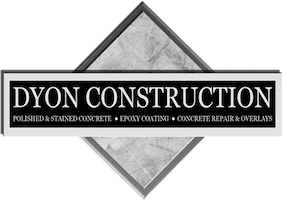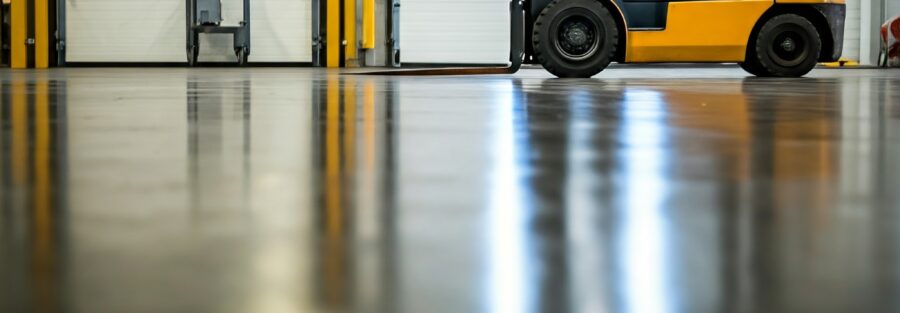Industrial facilities demand flooring that can withstand constant wear and tear, heavy machinery, and exposure to chemicals—all while maintaining safety and aesthetic appeal. Industrial epoxy flooring is the go-to solution for these high-stakes environments.
Whether it’s a bustling warehouse, a manufacturing plant, or a distribution center, epoxy flooring offers unmatched durability, resistance to chemicals, and a seamless, easy-to-clean surface. In this guide, we’ll uncover the many advantages of industrial epoxy flooring, explore its applications, and explain why it’s a top choice for warehouses and facilities worldwide.
Why Choose Industrial Epoxy Flooring?
Epoxy flooring is much more than a simple surface coating. It’s a high-performance solution designed to meet the rigorous demands of industrial settings. Made from a combination of resin and hardener, epoxy forms a tough, durable layer that adheres to concrete, creating a seamless finish.
Its benefits go beyond strength. Industrial epoxy flooring enhances safety with slip-resistant options, improves the aesthetic of the space with customizable finishes, and ensures compliance with industry standards for hygiene and cleanliness.
Benefits of Industrial Epoxy Flooring
1. Unmatched Durability
Epoxy flooring is engineered to handle heavy loads, constant traffic, and impacts from machinery or tools. Its high compressive strength makes it ideal for facilities where durability is critical.
2. Chemical and Stain Resistance
Industrial spaces often deal with spills of oils, chemicals, and other substances. Epoxy flooring is resistant to stains and chemical damage, keeping your floors pristine and functional.
3. Improved Safety
Slip-resistant additives can be incorporated into epoxy flooring to prevent accidents, even in areas prone to spills or wet conditions. This makes it an excellent choice for ensuring employee safety.
4. Low Maintenance
Thanks to its seamless, non-porous surface, epoxy flooring is incredibly easy to clean. Dust, debris, and spills can be wiped away effortlessly, reducing maintenance time and costs.
5. Customizable Aesthetic
Industrial doesn’t have to mean boring. Epoxy flooring is available in a range of colors, finishes, and patterns, allowing you to customize your space while maintaining professionalism.
6. Hygienic and Compliant
Epoxy flooring is ideal for facilities that need to meet stringent hygiene standards, such as food production areas or laboratories. Its seamless surface prevents bacteria and mold growth.
Applications of Industrial Epoxy Flooring
1. Warehouses and Distribution Centers
Epoxy flooring can withstand the weight of forklifts, pallets, and other heavy equipment, making it perfect for warehouses. Its durability ensures a long lifespan even in high-traffic areas.
2. Manufacturing Plants
In manufacturing environments, floors are exposed to chemicals, heat, and heavy machinery. Epoxy flooring provides the strength and resistance needed to handle these conditions.
3. Commercial Kitchens
Epoxy’s seamless finish and chemical resistance make it ideal for commercial kitchens where hygiene is paramount. It prevents the buildup of grease and bacteria, ensuring compliance with health codes.
4. Laboratories and Clean Rooms
Epoxy flooring is easy to sterilize, making it a preferred choice for laboratories and clean rooms. It meets industry standards for cleanliness and safety.
5. Automotive and Aerospace Facilities
For facilities that deal with oil, grease, and heavy machinery, epoxy flooring is a game-changer. Its resistance to chemicals and durability makes it a top choice for automotive and aerospace industries.
The Installation Process
Installing industrial epoxy flooring requires expertise and precision to ensure a flawless, long-lasting result. Here’s what the process typically involves:
Step 1: Surface Preparation
The concrete surface must be thoroughly cleaned, repaired, and smoothed. Grinding or shot blasting is often used to remove contaminants and create a rough surface for the epoxy to bond to.
Step 2: Primer Application
A primer layer is applied to the prepared surface to enhance adhesion and seal the concrete.
Step 3: Epoxy Coating Application
The epoxy mixture, often in multiple layers, is applied to the floor. Decorative elements like flakes or quartz can be added at this stage for enhanced aesthetics or functionality.
Step 4: Topcoat Application
A clear or colored topcoat is applied to seal the epoxy and provide additional protection. This final layer enhances durability, chemical resistance, and shine.
Step 5: Curing
The floor is left to cure for 24–72 hours, depending on the type of epoxy used and environmental conditions. Once cured, the floor is ready for use.
Comparison Table: Industrial Epoxy Flooring vs. Other Flooring Options
Flooring Option | Pros | Cons | Ideal Locations | Price Per Sq. Ft. | Durability | Maintenance |
Industrial Epoxy Flooring | – Highly durable | – Slippery when wet | Warehouses, factories, facilities | $4–$12 | Excellent (10–20 years) | Low |
– Chemical and stain resistant | – Professional installation needed | |||||
– Easy to clean | ||||||
Polished Concrete Flooring | – Affordable | – Prone to cracking | Manufacturing plants, showrooms | $3–$8 | Excellent (20+ years) | Low |
Vinyl Flooring | – Budget-friendly | – Less durable than epoxy | Offices, light industrial spaces | $2–$6 | Moderate (5–10 years) | Low |
– Soft underfoot | – Susceptible to damage | |||||
Ceramic/Porcelain Tile | – Durable, easy to clean | – Requires grout line cleaning | Commercial kitchens, retail spaces | $7–$15 | Good (10–15 years) | Moderate |
– Variety of designs | – Can be slippery | |||||
Polyurethane Flooring | – Highly durable | – Expensive | Labs, food production areas | $5–$15 | Excellent (15+ years) | Moderate |
– Resistant to chemicals | – Requires professional installation | |||||
Rubber Flooring | – Shock absorbent | – Prone to scuff marks | Gyms, hospitals, warehouses | $4–$8 | Good (10+ years) | Low to moderate |
– Comfortable underfoot | – Expensive compared to epoxy |
Frequently Asked Questions
1. What is industrial epoxy?
Industrial epoxy is a high-performance flooring solution made from a blend of resin and hardener. It creates a durable, chemical-resistant surface ideal for industrial settings.
2. What is the disadvantage of epoxy flooring?
Epoxy flooring can be slippery when wet and requires professional installation, which can add to upfront costs. However, slip-resistant additives can mitigate this issue.
3. What is the strongest epoxy flooring?
High-performance industrial-grade epoxy is the strongest option, offering maximum durability, chemical resistance, and longevity for demanding environments.
4. Can epoxy floor break?
While epoxy floors are highly durable, they can crack or chip if the underlying concrete is compromised or if exposed to extreme impacts. Proper installation minimizes this risk.
5. What flooring is better than epoxy?
Polyurethane flooring offers similar durability but is more flexible and resistant to thermal shock, making it ideal for food production areas and laboratories.
Industrial epoxy flooring is the ultimate solution for facilities requiring strength, safety, and style. Its durability, low maintenance, and resistance to chemicals make it ideal for warehouses, factories, and other demanding environments.
By investing in professional epoxy flooring, you’re not just upgrading your space—you’re enhancing safety, efficiency, and aesthetics. Ready to transform your industrial space? Contact a trusted contractor today to get started!

